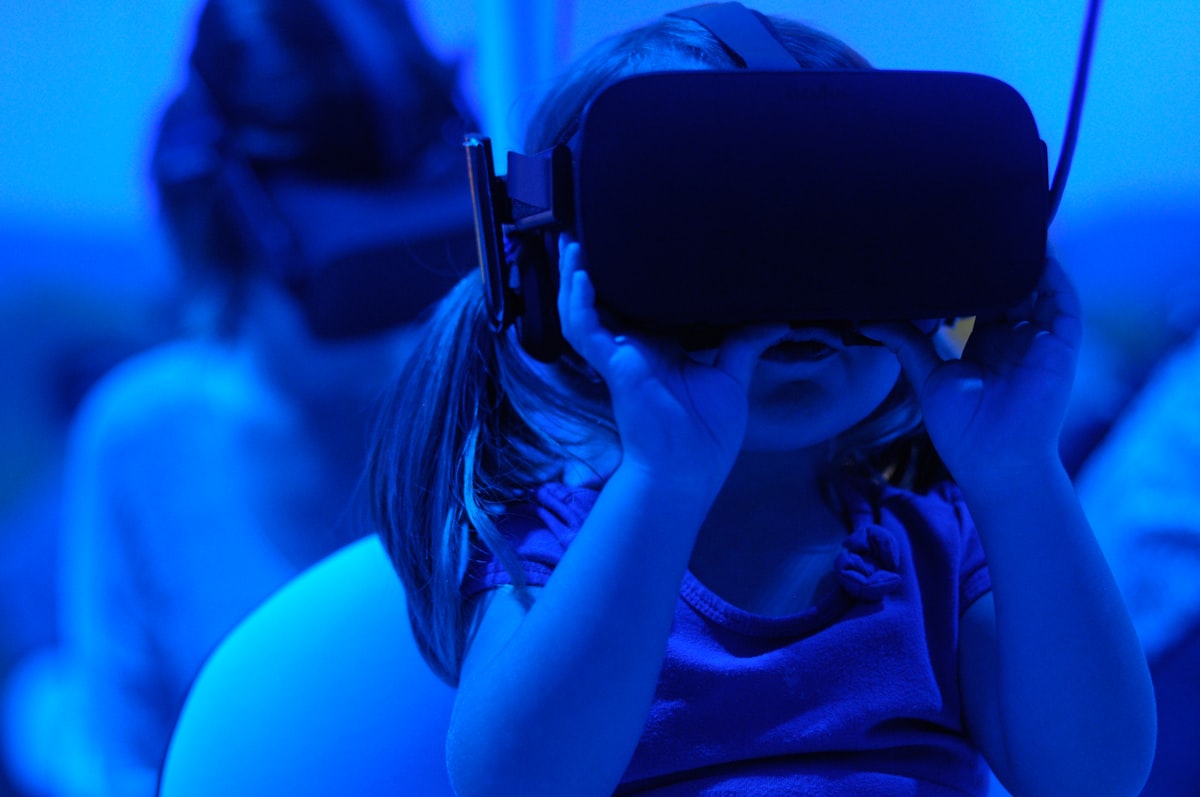Are you ready, player one?
Pandora's box has been opened - the dystopian future once predicted is fast becoming the present-day reality. What does it look like, and what does it mean for us and our mental health?

Is technology going too far?
Every day, we use technology to solve complex problems; it is one of the innovations that has allowed us to become more efficient in our daily tasks and access a wealth of information at our fingertips. Yet the cost of this convenience means we have to give something away for it. There is no such thing as a free lunch!
What we trade for this is our data. Almost everything we do on smart devices and every website we visit gives up some information about us. A small example of the data we send to the technology conglomerates might be location data (from GPS sensors we walk around with), biodata (from wearable technology), or even what we are seeing (through photos). We may or may not be happy trading this data, but what about data collection on children?
An ever-increasing amount of data is being gathered on our children, either through parents sharing data or devices our children own sharing data, meaning the companies can already predict things about people they didn't even know about themselves.
The algorithms are constantly seeking our attention to run against this data. Have you ever picked your smart device to do something and found yourself distracted by another app? The algorithm has just hacked your thought process.
Human bias has ensured we tend to learn from successful people. Success leaves clues that we can copy. However, what if these same human biases react to what the algorithms suggest?
Early research suggests it can change our behaviours; therefore, our unconscious biases are being manipulated for a better description.
Artificial Intelligence has entered the mainstream now, and we are amazed at how it is helping solve daily problems. My point about Artificial Intelligence isn't that it's a wrong tool; there are genuine use cases, but we need to understand how it achieves what it does. The danger here is we are constantly feeding the models with tantalising friendly chatbots trained on Large Language Models (LLM), trading convenience for our data. As we innocently chat, we are fine-tuning the models further. All whilst having a risk of reducing human creativity. For this reason, I have already decided to move away from using it to generate content for the blog in the future. Currently, GPTs can't reason, but it is believed that future iterations of GPTs will start to reason better. Known as Artificial General Intelligence, the fear is that this will lead to a superintelligence far more significant than human intelligence.
The Near Future - The Dawn Of Mixed Reality
What is next, then? At the time of writing, we are in the dawn of mixed reality; these headsets directly strapped to our heads create high-quality immersive experiences. Currently, the Oculus 2 and 3 from Meta are focused on consumers; the new Apple Vision Pro is the first device to provide interaction with real-world tasks. Combined with high-quality sensors, it allows even greater access to our biodata and may enable us to understand our emotions and emotional triggers. Pair the device with other wearable technology, and you will have vast data available to others. The tech companies have you believe the information is private and stored on a device; that might be the case until you decide to share it, and you will, whether you admit it or not. I am confident in saying this because we already do. We are already incentivised to do so, which is easy since we are hardwired into sharing. We are hardwired to tell stories, which is how humans share critical information. Our data has become a component of our storytelling.
This, for me at least, is a scary and lonely prospect. It is possible to imagine people in homes up and down the country staring at plain walls, living in isolation, and experiencing a reality they choose to experience to escape from reality. A hidden danger is that as we become more addicted to using technology, it is difficult to determine what is reality and what is not, all while breaking down authentic human connections.
Even with the technology we use today, we are closer than ever to being connected to someone but further away from genuine human connection at any point in history.
Check out Hyper Reality, a short film created by Keiichi Matsuda, which offers an idea of how this future might look.
Some mixed reality videos for Apple Vision and Oculus 3 look like this video's vision, yet this was created 7 years ago.
If all this seems far-fetched, consider that we now have the technology to recreate images that don't exist. Think of the infamous pope puffer jacket. This was not possible mainstream less than 2 years ago, but now, anyone can easily create deep fakes, meaning we are already at the stage where seeing is no longer believing.
What is real, what is a simulation, and where we are can be modelled by Hyper Reality.
Hyperreality is not new but has a renewed focus in modern-day society.
There are four steps of hyperreal reproduction:
- Basic reflection of reality, i.e. in immediate perception
- Perversion of reality, i.e. in representation
- Pretence of reality, where there is no model
- Simulacrum, which "bears no relation to any reality whatsoever."
We are estimated to be sitting somewhere between stages 2 and 3. We are in danger of reaching stage 4, with mixed reality devices hitting the mainstream.
Are we prepared?
As technology grows, mental health declines. A paradox exists in that technology helps us get closer to services to help our mental health, yet at the same time, plays an active role in the decline in our mental health.
Do we have the resilience to cope? I am not sure, and here's why.
Evolution cannot happen quickly enough for us to cope. Anxiety is a clear example of this. Our brains still misinterpret modern stresses that are not life-threatening as signs of danger. The amygdala in our brains reacts the same way today as it did in our ancestors. Technology is moving so fast that it's impossible to keep up.
Final Thoughts
Much of this article is forward-thinking, perhaps even conjecture to a point. So please do not think this has been about making your tin foil hats. However, can we afford not to be cautious?
We seem to be at a point when historians may look back on where technology took over. We are standing on the edge of the precipice with the perfect storm of large datasets (personal and general), artificial intelligence and mixed reality. Undoubtedly, the technology is beyond impressive, a marvel of human creativity that, ironically, could destroy creativity someday.
Who is old enough to remember the early days of YouTube? It was simply a place for silly cat videos and is now a global media outlet crossing borders. Or even when TikTok is being dismissed as a business platform (I remember the day I mentioned it, I think I was laughed out of the room). Mixed reality headsets right now might be chasing aliens around your room, but what's next?
Right now, the technology is expensive and 'consumerised' for the early adopters. As history tells us, there is no doubt that technology will get cheaper and further refined devices will be available to the mass market. This is how technology has always worked.
Mental health will likely decline as we struggle to keep up with the pace of technology and the dangers it can bring.
My question to you. Are you Ready, Player One?




